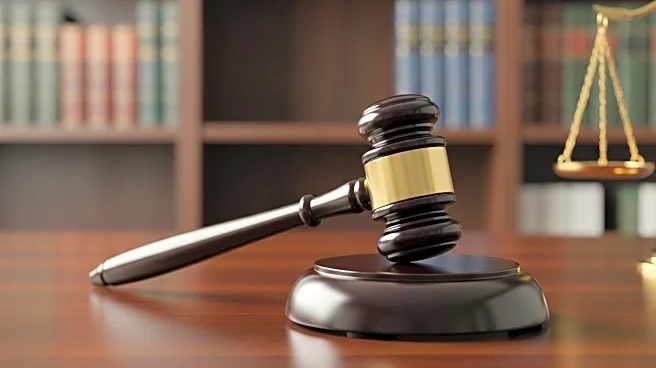What's Happening?
A federal judge has declined to reinstate eight former inspectors general who were dismissed by the Trump administration. The decision comes after these officials filed a lawsuit claiming their terminations were unlawful due to the lack of a 30-day notice to Congress and absence of a substantive rationale for their removal. U.S. District Judge Ana Reyes acknowledged that President Trump likely violated federal law in the process of removing these non-partisan watchdogs but stated that the firings did not cause irreparable harm that would justify reinstatement before the lawsuit's resolution. The inspectors general were responsible for overseeing various federal agencies, including the Small Business Administration and departments such as Defense, State, and Veterans Affairs. Despite the judge's ruling, the plaintiffs may receive legal compensation if they win their lawsuit.
Why It's Important?
The decision highlights ongoing concerns about the independence and integrity of federal oversight mechanisms. Inspectors general play a crucial role in identifying waste and fraud within government agencies, and their removal without due process raises questions about the administration's commitment to transparency and accountability. The firings have sparked fears that the absence of these watchdogs could weaken institutional mechanisms designed to prevent wrongdoing, potentially leading to increased fraud and abuse. The case underscores the tension between executive authority and legislative oversight, with implications for how future administrations might handle similar situations.
What's Next?
The lawsuit filed by the inspectors general will continue, with potential legal compensation for the plaintiffs if they prevail. The case may prompt further scrutiny of the Trump administration's actions and could lead to legislative efforts to strengthen protections for inspectors general. The outcome may influence how future presidents approach the removal of federal watchdogs and could impact the broader debate on executive power versus congressional oversight.
Beyond the Headlines
The case raises ethical and legal questions about the balance of power between the executive branch and independent oversight bodies. It also highlights the challenges in ensuring accountability within the federal government, particularly when political considerations may influence the removal of officials tasked with maintaining transparency. The long-term implications could include shifts in how inspectors general are appointed and removed, potentially leading to reforms aimed at safeguarding their independence.








